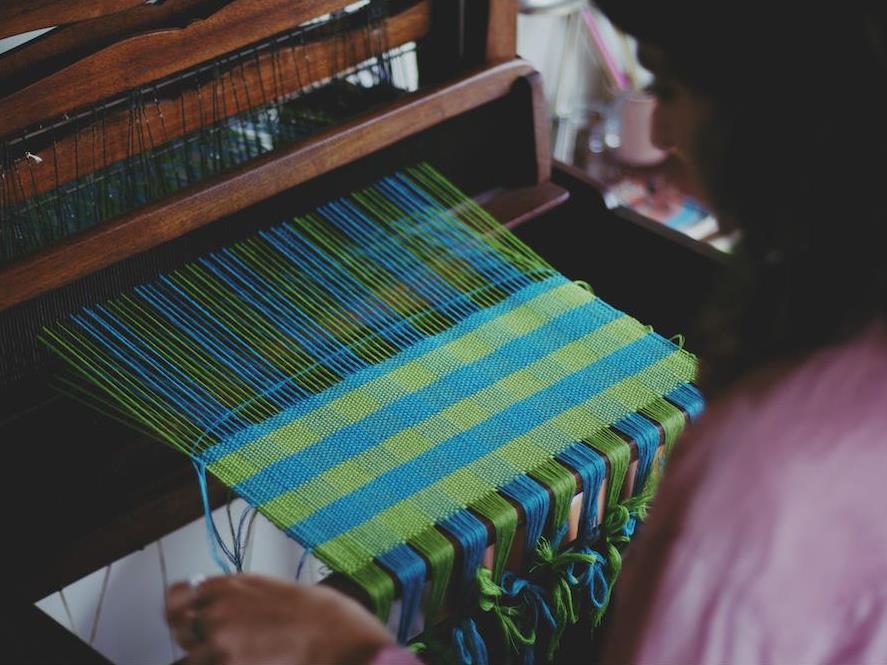Image courtesy of Anna-Rose Carpenter.
A change of scenery, and spending time with experts, can help you break out of any creative ruts you were in and really take your work in new directions.
Anna-Rose Carpenter is right now, in the middle of a four-week residency at the Vale de Gatos (Valley of Cats) textile studio in Portugal. She is a textile artist who makes sculptural objects, woven bags and wall hangings.
How she got there
Anna-Rose always had an arts residency in the back of her mind, but the idea became much more solidified when some of her friends and fellow textile artists went on residencies to places like Iceland. So she had a look at res artis, a residency aggregator, and set her sights on Vale de Gatos.
Vale de Gatos appealed to her because it was in a rural setting, in someone’s home. It’s a way to really get to know Portuguese culture in a way that you’d struggle to do if you were just visiting as a tourist. Of course, there’s also the practical side: the residency offers technical assistance in weaving, which is the skill Anna-Rose is looking to develop.
So she applied, and got in! But of course, that’s not the end of the story. Residencies, like most training opportunities, cost money. The next step was to raise the money to make it a reality – which she did through a Boosted campaign where she raised funds for the fees, but paid for other expenses, like airfares, herself.
What a day looks like
A typical day will start with breakfast at 9am then she’ll head into the studio until she breaks for lunch around 2pm. During that time, she works closely with Isabel, the expert weaver who co-runs the residency. ‘Some people are awesome at learning from YouTube,’ Anna-Rose said. ‘But I really prefer hands-on teaching if possible.’
After lunch, she’s either back in the studio or reading from the library of textiles books. She reads up on techniques, contemporary practices and the history of textiles. She says this is great because her busy schedule of balancing part-time work with weaving projects usually doesn’t allow the time to do a lot of in-depth research. She finds there’s something about being in a different environment that makes it easier to sit down and get stuck into a book for the afternoon. It also helps that she didn’t bring her laptop with her!
So it’s a good combination – partly focussed practical work, partly working on extending her knowledge of the field in general.
Using a mentor to get there
Anna-Rose also had the support of a mentor, through The Big Idea’s Mentoring in the Arts Program. The program paired her with Philip Clarke, who helped her with a whole bunch of things – including working on both a grant application to Creative NZ (which didn’t work out) and her Boosted campaign (which did).
He also helped Anna-Rose position herself more effectively. ‘He pointed out things in my practice that I thought were obvious – then helped me develop ways I could communicate those things in places like my website and Instagram to give people more of an insight into my work,’ she said. The introductions he made to his professional network were immensely helpful for both development and support to her crowdfunding campaign.
Where to from here?
From here, Anna-Rose is going to keep working on developing her technique and research at the residency. Soon enough, she’ll be taking her new skills home, where she’s having a joint show with Felixe Laing at Auckland’s Studio One which opens in late September. Keep an eye on her website and Instagram to see the next steps in her journey as an artist!
This article originally appeared on The Big Idea NZ and is republished with permission. Read the original article.





